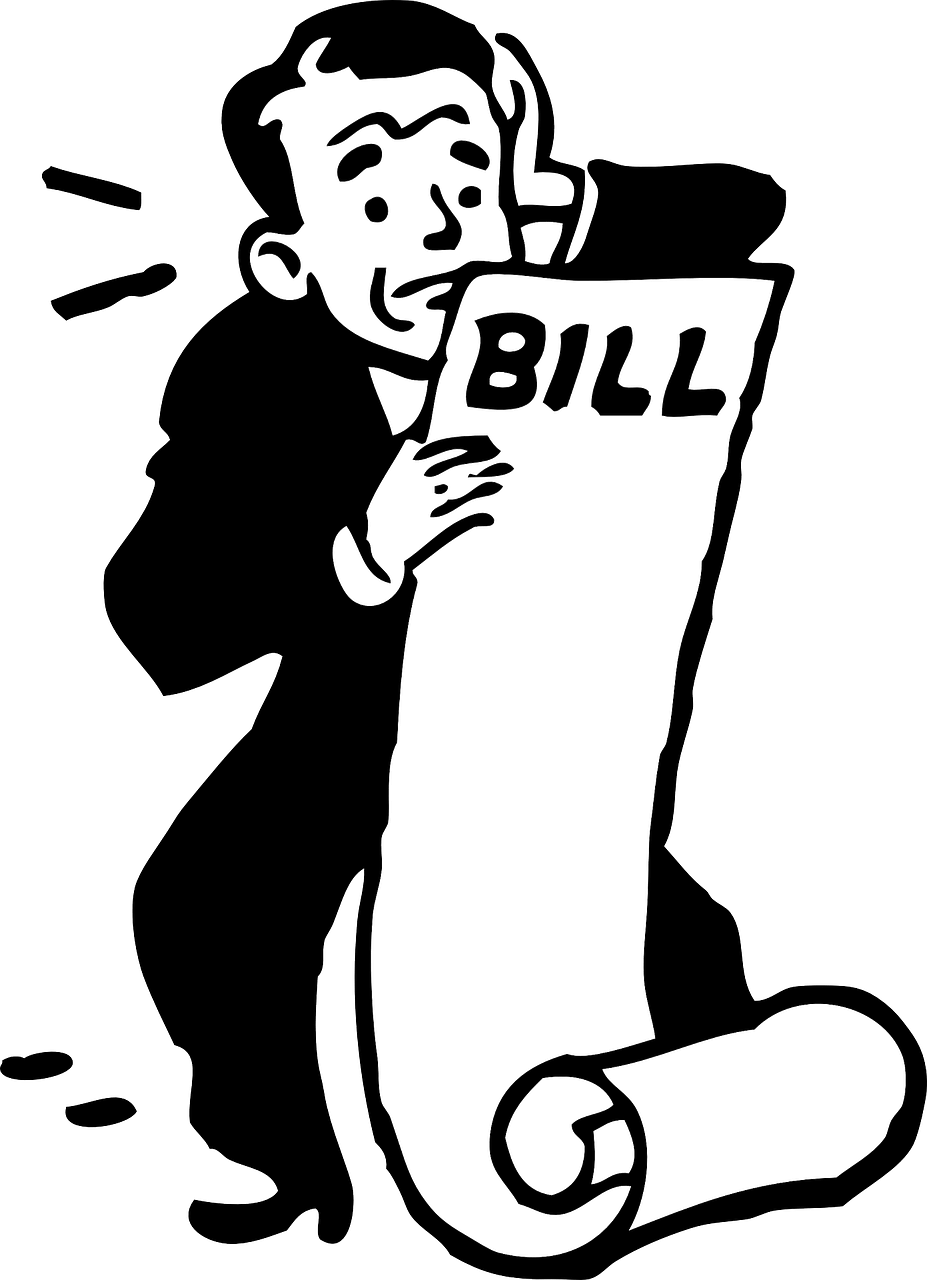Chapter 7 vs Chapter 13 Bankruptcy
Lets Break Down Chapter 7 and 13 Bankruptcy
Anyone doing a little research on filing bankruptcy quickly runs into the Chapter 7 vs Chapter 13 question. What are the Pros and Cons of Chapter 7 and Chapter 13? A lot of what you read makes it sound like you have to file Chapter 13 to keep your house or your car, which isn’t true. Which one would be better for you? For most people, the answer is Chapter 7 because it is over sooner and does not require making payments on your debts. So why does anyone file Chapter 13?
There are specific situations in which Chapter 13 would be better so the answer to Chapter 7 vs Chapter 13 really is whether any of those circumstances apply to you. Basically, Chapter 13 may be better if you owe back taxes or if you have non-exempt equity in your home or other assets. If you have filed Chapter 7 in the last 8 years or have substantial income, Chapter 13 may be the only way to get bankruptcy court protection. In the free initial consultation, we help our clients determine if there are reasons for them to consider Chapter 13 or if it looks like Chapter 7 is going to work for them
Chapter 7 Vs Chapter 13 Bankruptcy
Chapter 7 and Chapter 13 both involve filing bankruptcy, so they both will stop all of the collection actions against you and will discharge your debts. The big differences involved in the Chapter 13 vs Chapter 7 question have to do with how long it takes and what you have to do before your debts are discharged.
The good news is that we help you determine right away if there is any reason why you should think of filing Chapter 13 instead of Chapter 7. It isn’t as though you have to decide on your own what would be better for you.
Here are the things that we take into consideration;
If you have filed Chapter 7 more than 4 years but less than 8 years ago, or if you have a pretty high income and you can’t pass the means test, then you might have to file Chapter 13 to get bankruptcy court protection. Otherwise, it is just a question of whether you would benefit from being in Chapter 13. Typically this would be if you would like to have the court protect you while you pay debts that can’t be discharged, like recent income taxes or payroll taxes, or back child or spousal support. Also, Chapter 13 would be better than Chapter 7 if you have a lot of equity in assets, like more equity in your home than could be protected by the homestead exemption.

Chapter 7
Chapter 7 is the most common kind of bankruptcy. The advantages are that it is over faster and doesn’t usually require any payments on unsecured debt. Most of our clients qualify for Chapter 7 and most of them do not have to worry that the trustee will take any of their assets. Most Chapter 7 cases are no asset cases and most people are able to discharge all of their debts. So, in other words, we end up advising most people that they have no reason to consider filing Chapter 13.
Chapter 7 is better for most people because it is much shorter and this means that you can start to rebuild your credit faster. So this means that even though it stays on your credit longer, 10 years for Chapter 7 vs 7 years for Chapter 13, most people will have better credit sooner after filing Chapter 7 than filing Chapter 13.
We help our clients evaluate these issues right away, usually in the initial free consultation.
Business owners can file Chapter 7 if the company doesn’t need bankruptcy court protection and the available exemptions cover the value of the business. A Chapter 7 can be filed by a business, but since there is no discharge and no exemptions for a business, this is usually done only to allow for an orderly liquidation and payment of priority claims where there are already collection efforts underway that might threaten payment of those claims by the owners.
A typical Chapter 7 is over in 3-4 months but a disadvantage is that collection efforts on non-dischargeable debts can resume as soon as the other debts are discharged.
Chapter 13
We advise our clients to consider filing Chapter 13 only when there are special circumstances. This is usually because there are non-dischargeable debts that could be paid while you are protected in Chapter 13 or if you have non-exempt assets that would be lost in Chapter 7. An advantage of Chapter 13 is that you get bankruptcy court protection for longer than the 3-4 months that a Chapter 7 case usually lasts. We often advise our clients to consider Chapter 13 if they have tax debt or past due child or spousal support that they couldn’t handle on their own after discharging the rest of their debts in a Chapter 7. If you have more of these debts than you could handle on your own after Chapter 7, we might suggest you consider Chapter 13. We would then help to see if you could handle the payments that would be required in a Chapter 13.
For more information on how Chapter 13 protects you from tax collections, check out our
blog post.
If you have equity in your home or other assets, we’ll help you evaluate whether it is covered by the available exemptions. If not, we’ll then consider whether you might be able to make a deal for some payments to the Chapter 7 trustee. For example, for someone who owns a $22,000.00 car with no debt against it, Chapter 7 could be a problem because this value exceeds the available exemptions. However, we might be able to make a deal with the trustee to accept for example $2,500.00 in ten monthly payments of $250.00. This would let them avoid filing Chapter 13 while still keeping their car.
Chapter 13 cases usually last 5 years but if your income isn’t too high, it might be possible to finish your case sooner, any time after 3 years. It is very important to understand that you do not have to automatically pay your creditors in full in Chapter 13. Only a very few of our clients have to pay everyone in full and this is only because they have a lot more non-exempt assets than they have in bills or they have a lot of income and can afford to pay everyone over a 5 year period of time.
We understand that the larger the payment, the less likely it is that our clients can complete the plan so we work hard to make the plan payments as small as possible.

Should I Choose Chapter 7 or Chapter 13 Bankruptcy?
We will guide you through this choice so you don’t have to decide on your own which one to do. However, there is no doubt that we will recommend Chapter 7 unless there is some specific reason why Chapter 13 would be more beneficial.
The situation in which this might be true is if you have taxes or other non-dischargeable debt that you can’t handle on your own or significant non-exempt equity in your assets. You might also choose to do Chapter 13 if you have a sole proprietorship business that will need bankruptcy court protection.
In all other situations, it is likely that
Chapter 7 will be better for you since it is over much sooner and will allow you to start to rebuild your credit sooner.
You can also check out this
table for an easy breakdown of the differences between the types of bankruptcy. However, it is a bit of a simplification so please let us know if you have any questions and remember that we help our clients with this decision and evaluate whether there is any reason for them to think about filing Chapter 13.
How Does Each Form of Bankruptcy Affect Credit?
Since both Chapter 7 and Chapter 13 are bankruptcy cases, there will be an immediate negative impact on your credit regardless of which one you file. And while a Chapter 7 filing will be on your credit longer, 10 years instead of 7 years, there is no doubt that your credit will be better sooner if you file Chapter 7 vs Chapter 13.
This is because you can start to rebuild your credit when your case is over. The discharge of debt comes at the end of the bankruptcy. In Chapter 7, this is just a few months but in Chapter 13 it is usually 3 to 5 years. Your credit will improve when the debt is discharged because that step will improve your debt-to-income ratio, an important part of your credit score. And, when the case is over, you can start to take active steps to rebuild your credit.
We continue to represent our clients after either a Chapter 7 or a Chapter 13 to help them improve their credit. Because you will have extra years to work on building your credit score in Chapter 7 vs Chapter 13, it is certain that you can have better credit sooner if you file Chapter 7.

Chapter 7 and Chapter 13 in Oregon
Oregon’s homestead exemption is pitifully small compared to home values in the state; $40,000.00 for an individual and $50,000.00 for a couple. This means that more homeowners are likely to have non-exempt equity than in a state like Nevada with a $550,000.00 homestead exemption or California, with $600,000.00. And if you want to protect the non-exempt equity in your home, you have to file Chapter 13 vs Chapter 7. We help our clients determine the best strategy to protect the equity in their homes given their individual situations. You do not have to try to figure out these complicated issues on your own.
If you don’t own your home and have lived here for at least two and a half years, then you can use the more generous federal bankruptcy exemptions which allow you to protect much more. For most people, this is all of their assets, so you can file Chapter 7 without worrying about losing anything. Of course, we help you by evaluating your assets and your available exemptions, usually in the initial consultation.
Get Assistance From an Attorney
When done right, bankruptcy is simple. But there can be many traps and pitfalls as well. Chapter 7 vs Chapter 13 is a complicated question and there is no doubt that it would be very helpful to have an attorney. We would help you determine if there is any reason for you to choose the longer and more expensive Chapter 13 over the quicker and less expensive Chapter 7. We are with our clients every step of the way. Just contact us, by submitting a form on our website, calling, texting, or sending us a WhatsApp message








Share On: